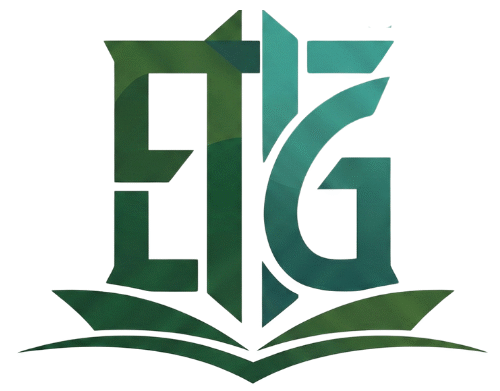Five Pillars of Islam
The online course on the Five Pillars of Islam at eTuitionsGateway provides a detailed exploration of the fundamental principles that guide Muslims in their faith. This course explores the significance of each pillar and its impact on the lives of believers. By studying these pillars, students will gain a deeper understanding of Islamic practices and strengthen their relationship with Allah.
The 5 Pillars of Islam represent the fundamental acts of worship and religious duties that every Muslim must observe to lead a righteous life. These pillars are Shahada (the declaration of faith), Salah (prayer), Zakah (charity), Sawm (fasting during Ramadan), and Hajj (pilgrimage to Mecca).
Unlock Quranic mastery: Learn about Five Pillars of Islam with EtuitionsGateway!
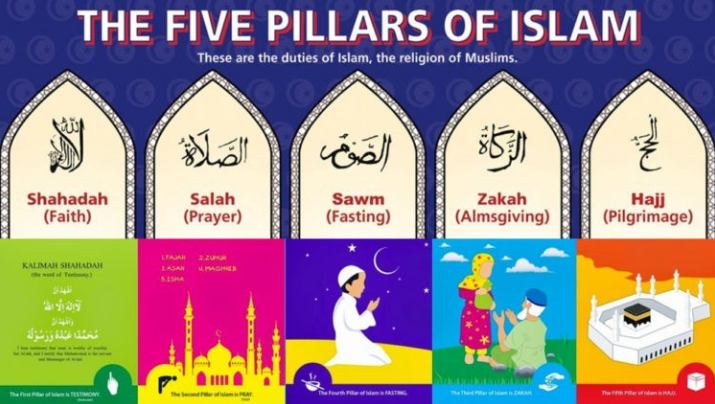
What you’ll learn in this course?
The online course on the Five Pillars of Islam, offered by eTuitionsGateway, provides a comprehensive understanding of the fundamental principles of the religion through engaging lessons. Few key topics covered in this course include:
- Introduction and importance of the pillars of Islam
Understanding the pillars of Islam that Allah has commanded in the Quran is crucial. Allah promises that if we observe these pillars and perform them solely for His sake, we will succeed both in this life and in the hereafter. - The Profession of Faith (Shahada)
The belief that “There is no god but God, and Muhammad is the Messenger of God” is central to Islam. This phrase, written in Arabic, is often prominently featured in architecture and various objects, including the Qur’an, Islam’s holy book of divine revelations. To become a Muslim, one must recite this phrase with conviction. - Daily Prayers (Salat)
Muslims are expected to pray five times a day. This does not mean they must attend a mosque for each prayer. Instead, the salat, or daily prayer, should be recited five times a day, wherever they are. - Alms-Giving (Zakat)
According to Islamic law, Muslims donate a fixed portion of their income to help community members in need. Many rulers and wealthy Muslims have built mosques, drinking fountains, hospitals, schools, and other institutions both as a religious duty and to obtain the blessings associated with charity. - Fasting The Month of Ramadan (Sawm)
During the holy month of Ramadan, the ninth month of the Islamic calendar, Muslims are expected to fast from dawn to dusk. Exceptions are made for the sick, elderly, and pregnant, but all others are required to refrain from eating and drinking during daylight hours. - Pilgrimage to Mecca (Hajj)
Every Muslim who is capable must make the pilgrimage to Mecca and the surrounding holy sites at least once in their lifetime. The pilgrimage focuses on visiting the Kaaba and walking around it seven times. The pilgrimage occurs in the 12th month of the Islamic Calendar.
Journey into Quranic excellence: Learn Pillars of Islam online with EtuitionsGateway
Benefits and Importance of this Online Course
Enrolling in the online course on the Five Pillars of Islam at eTuitionsGateway provides several benefits that can enhance your understanding and practice of Islam. Here are some appealing advantages you can look forward to from participating in this program:
- Develop Moral Values: Explore how following the Five Pillars promotes personal growth through nurturing virtues like humility, discipline, charity, and selflessness.
- Deepen Your Knowledge: Gain a comprehensive understanding of the Five Pillars of Islam, including their historical context and significance in the Muslim faith.
- Strengthen Your Faith: Delve into the spiritual significance of each pillar, enabling you to deepen your connection with Allah and cultivate a stronger sense of devotion.
- Establish Lifelong Habits: By fully engaging in the teachings of this course, you can develop lasting habits based on fulfilling Allah’s commands every day, bringing about positive change not only during Ramadan but also throughout all stages of life.
- Enhance Your Worship: Learn how to perform each pillar correctly, ensuring that you fulfill your religious obligations with confidence and precision.
- Become an Ambassador for Islam: Equipped with knowledge about the true essence of the Five Pillars, confidently counter misconceptions about Islam in society while promoting tolerance and understanding among different cultures and religions.
Why eTuitions Gateway?
The online course on the Five Pillars of Islam at eTuitionsGateway offers a variety of educational features that make it an engaging and effective learning experience. Here are some unique and captivating features included in the course:
- Expert Instructors: Students will learn from experienced instructors who have extensive knowledge of Islamic teachings and provide continuous guidance throughout the course.
- Personalized Feedback: Students receive individualized feedback from instructors on their assignments or assessments completed during the course.
- Comprehensive Curriculum: The curriculum is meticulously crafted to encompass all facets of the Five Pillars of Islam, ensuring that students acquire a comprehensive understanding of the significance and practical application of each pillar.
- Practical Application: The course includes practical application exercises, allowing students to apply what they have learned in real-life situations and strengthen their understanding of the Five Pillars of Islam.
- Interactive Lessons: The course offers interactive lessons featuring multimedia elements like videos, quizzes, and interactive exercises, designed to enrich engagement and deepen understanding.
- Certificate of Completion: Upon completing the course, students receive a certificate of completion which can be used for personal or professional development purposes.
Transform your understanding: Master Basics of Islam with EtuitionsGateway!
The Five Pillars of Islam
In Islam, it is important to recognize and acknowledge one’s duties and obligations towards the faith. The Five Pillars of Islam form the fundamental obligations of a Muslim. These renowned pillars include Shahadah, Salah, Zakah, Sawm, and Hajj. It is important to understand what these foundational principles mean. Continue reading to discover more about the Five Pillars of Islam.
1. What is Shahadah?
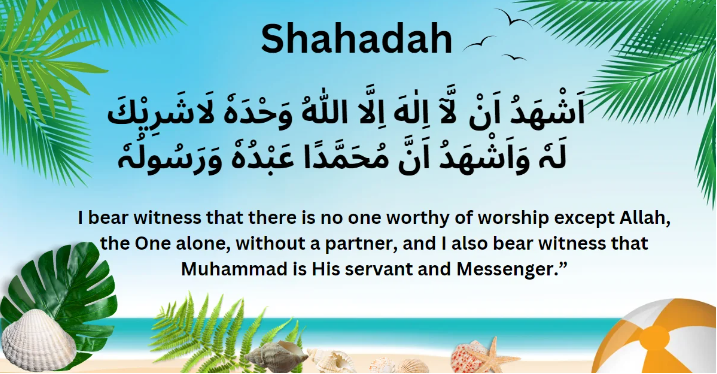
Shahadah signifies the declaration of faith and commitment to the belief in one God, Allah (SWT), and that He sent His Messenger, Prophet Muhammad (PBUH), to guide humanity. As the first of the Five Pillars of Islam, Shahadah is one of the most important and acts as the fundamental step towards submission to Allah (SWT) and announcing one’s intention as a true follower of the faith. Those who convert to Islam are also required to recite the Shahadah as their first act of joining the faith. This serves as a declaration and affirmation of their commitment to Islam.
To take Shahadah, intent is important. One must recite the declaration sincerely, accepting it with both heart and mind. It is important to know what the words mean while taking Shahadah.
Allah (SWT) says in the Holy Quran about true submission:
“And who can be better in religion than one who submits his face (himself) to Allah (i.e. follows Allah’s religion of Islamic Monotheism); and he is a Muhsin (a good-doer).”
[al-Nisa 4:125]
2. What is Salah?
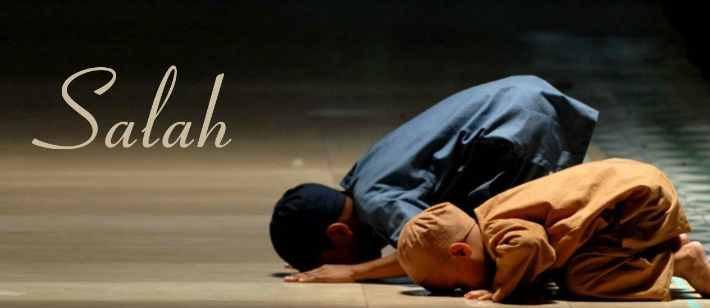
Salah, the second pillar of Islam, refers to the obligatory daily prayers performed five times a day at specific times. These prayer times span from dawn to midnight, varying based on geographical location and the season. The prayers are performed in the following sequence:
- Fajr – starts at dawn and ends at sunrise.
- Zuhr – begins at mid-day, after the sun has passed its zenith, and continues until Asr prayer.
- Asr –starts in the late afternoon and ends shortly before sunset.
- Maghrib – begins immediately after sunset, once the sun has dipped below the horizon.
- Isha – starts after Maghrib time, after the disappearance of the red afterglow, and continues until midnight.
An essential part of Salah is ablution, also known as wudhu. This process involves purifying oneself physically in preparation for prayer and is believed to cleanse a believer of minor sins.
Salah is preceded by the Adhan, the call to prayer, which is broadcast from mosques to signal the time for Salah. Muslims performing Salah at home can also recite the Adhan before beginning their prayers.
Salah serves as a crucial reminder that there is no one greater than Allah (SWT). During Salah, the mind should be clear of any worldly thoughts, focusing solely on the worship of Allah – a reminder that all humans were created by Allah (SWT) and that they shall return to Him.
3. What is Zakah?
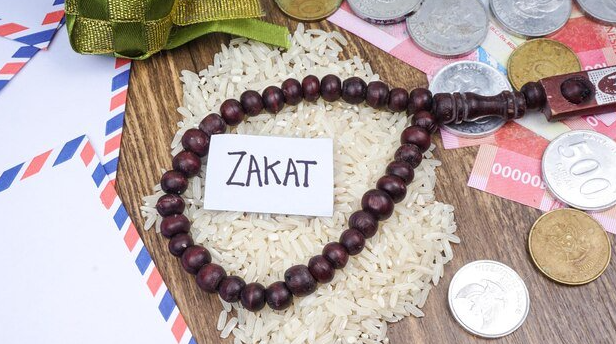
In the literal sense, Zakah means ‘to cleanse’ or ‘to purify.’ Zakah is an obligatory charity in Islam, serving as a form of worship to Allah (SWT) by giving what He has prescribed to those eligible, as outlined in the Qur’an. Every year, Muslims pay a 2.5% share of their held wealth (cash, property, gold, and silver) over a certain threshold to help the less fortunate.
According to Islamic principles, Zakah purifies wealth and helps it grow both literally and metaphorically. Donating from one’s wealth protects a person from problems, and Allah increases their provision because of their charitable giving.
“Wealth never decreases because of charity.” [Muslim, 2588]
Allah (SWT) says in the Qur’an:
“The example of those who spend in the way of Allah is just like a grain that produced seven ears, each ear having a hundred grains, and Allah multiplies (the reward) for whom He wills. Allah is All-Embracing, All-Knowing.” [2:261]
Zakah is a means of salvation from the heat of the day of resurrection. The Prophet (PBUH) said:
“Every man will be in the shade of his charity on the Day of Resurrection.”
[Sahih al-Jaami (4510)]
Islam places great emphasis on helping those in need. By donating your Zakat to Muslim Aid, you can help the less fortunate receive food, medication, education, and shelter.
4. What is Sawm?

The term Sawm means to fast. Fasting during the holy month of Ramadan goes beyond merely abstaining from food; it involves practicing discipline and refraining from temptations and bad habits. From dawn to sunset, able Muslims should avoid food and drink (including water), sexual activity, smoking, intoxication, and any impure thoughts. Throughout Ramadan and the rest of the year, believers strive diligently to refrain from evil acts and avoid causing harm to others.
The length of the fasting day varies according to the daylight hours in each region. Days are longer in summer and shorter in winter. The heat can make fasting challenging, so special care must be taken to avoid fatigue and dehydration during hot weather.
During Ramadan, believers have two main meals: Suhoor and Iftar. Suhoor, the pre-dawn meal, is highly encouraged to be eaten before beginning the fast. Iftar is a meal eaten just after sunset at the time of breaking the fast. Traditionally, the daily fast is broken with dates, which are known to carry numerous health benefits.
Ramadan is a profoundly auspicious month during which the initial verses of the Holy Qur’an were revealed to Prophet Muhammad (PBUH) as guidance for all humanity. This happened during the final 10 nights of Ramadan on Laylat-al-Qadr (the Night of Power), which holds great significance in Islam.
An important purpose of fasting is to attain taqwa (closeness to Allah (SWT)) – to establish a strong connection with Allah (SWT). The month itself holds countless rewards for those who seek forgiveness and the pleasure of Allah (SWT).
Certain individuals have been granted exemption from fasting – including those who are ill, those traveling, women expecting a child, breastfeeding mothers, and those who are underage or going through extreme old age. In most cases, missed fasts must be made up later. But if people unable to do so have to pay fidya.
Ramadan is then concluded with the festival of Eid-al-Fitr, which is a day many Muslims spend with family and loved ones. The day begins with congregational prayers, before which Zakat-al-Fitr (fitrana) is offered to those in need. Following this, Muslims celebrate and rejoice with loved ones. It is a time of prayer, feasting, and sharing gifts.
The month of Ramadan is the ninth month of the Islamic calendar. Because the Islamic year follows the lunar calendar, it shifts approximately 11 days earlier each year.
5. What is Hajj?
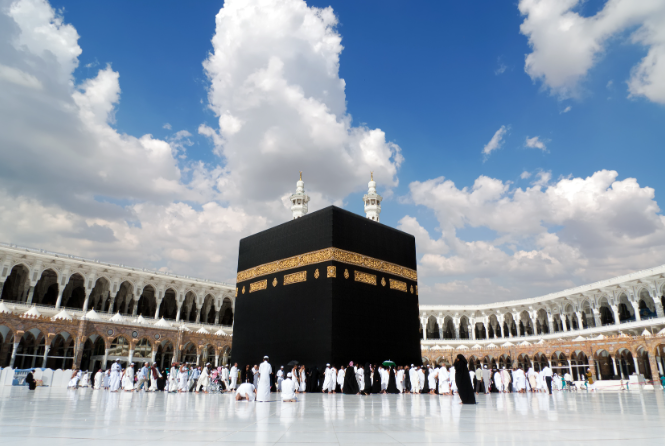
The fifth and final pillar of Islam is Hajj, the pilgrimage to Mecca. It is a time when Muslims from around the world gather in Mecca to worship Allah (SWT). Muslims perform several rituals to strengthen their faith and devotion. Pilgrims must wear plain white clothing and enter a spiritual state of holiness known as Ihram. Ihram promotes unity among the Ummah in attendance, emphasizing that no person—whether rich or poor, resident or traveler—stands above another. In the sight of Allah (SWT), we are all equal, regardless of age, ethnicity, status, or race.
Hajj takes place during the 12th and final month of the Islamic calendar, Dhul Hijjah, from the 8th to the 12th. It is a pilgrimage that every Muslim is obligated to undertake at least once in their lifetime.
Hajj is followed by the festival of Eid-al-Adha, which is the time of Qurbani (festival of sacrifice). The ritual of sacrifice dates back to the great sacrifice that Prophet Ibrahim was prepared to make in devotion to Allah (SWT).
